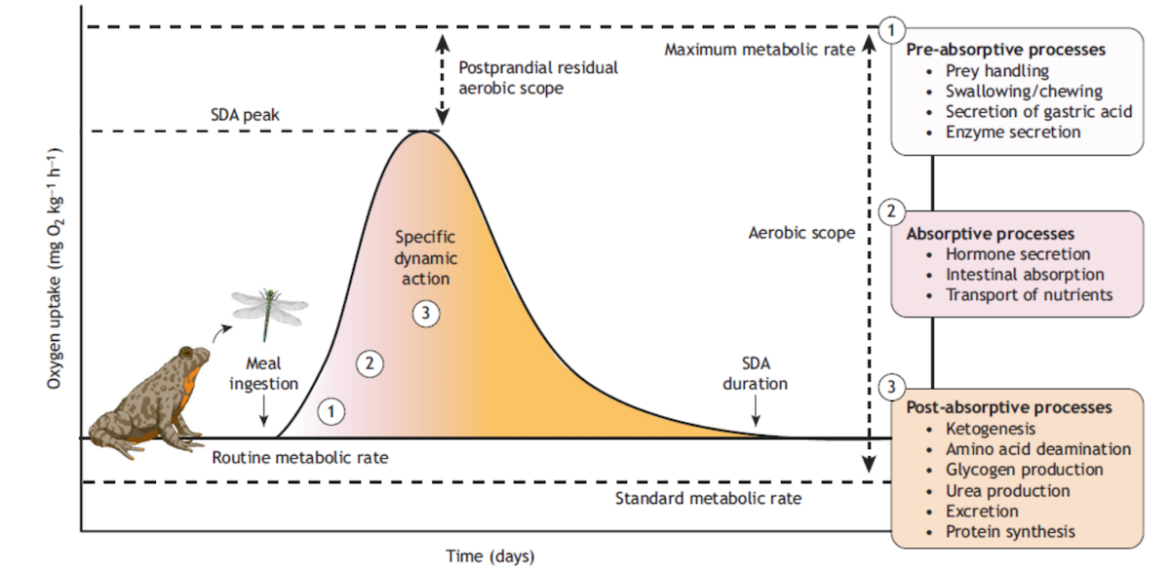
Fig. 1. Conceptional diagram showing the postprandial metabolic response to feeding known as the specific dynamic action (SDA). Upon meal ingestion, metabolic rate (≈aerobic metabolic rate) rises above the routine metabolic rate (RMR; solid horizontal line; see Glossary) to reach the SDA peak. Recognising the historical definition of SDA as a rise in metabolic rate above the standard metabolic rate (SMR), we argue that RMR serves as a more ecologically relevant baseline for SDA in most wild organisms. This is because individuals often feed opportunistically, are not consistently in a post- absorptive state, and engage in regular activities such as swimming before, during and after prey consumption. Over a period of hours, days or weeks (depending on species, environment, meal size and/or composition), postprandial metabolism returns to RMR; this period is termed the SDA duration. The total SDA for a meal is represented by the area under the curve, and can be subdivided into the pre-absorptive (1), absorptive (2) and post-absorptive (3) processes associated with digestion. The SDA response falls within the animal’s aerobic scope (AS; see Glossary), calculated as the difference between maximum metabolic rate (MMR; see Glossary) and SMR (dashed horizontal line). During digestion, the scope for aerobic activities outside digestion, such as exercise or reproduction, is defined by the postprandial residual aerobic scope (PRAS; (MMR–SDA peak). Figure produced with biorender.com.
ABSTRACT
The physiological processes underlying the post-prandial rise in metabolic rate, most commonly known as the ‘specific dynamic action’ (SDA), remain debated and controversial. This Commentary examines the SDA response from two opposing hypotheses: (i) the classic interpretation, where the SDA represents the energy cost of digestion, versus (ii) the alternative view that much of the SDA represents the energy cost of growth. The traditional viewpoint implies that individuals with a reduced SDA should grow faster given the same caloric intake, but experimental evidence for this effect remains scarce and inconclusive. Alternatively, we suggest that the SDA reflects an organism’s efficacy in allocating the ingested food to growth, emphasising the role of post-absorptive processes, particularly protein synthesis. Although both viewpoints recognise the trade-offs in energy allocation and the dynamic nature of energy distribution among physiological processes, we argue that equating the SDA with ‘the energy cost of digestion’ oversimplifies the complexities of energy use in relation to the SDA and growth. In many instances, a reduced SDA may reflect diminished nutrient absorption (e.g. due to lower digestive efficiency) rather than increased ‘free’ energy available for somatic growth. Considering these perspectives, we summarise evidence both for and against the opposing hypotheses with a focus on ectothermic vertebrates. We conclude by presenting a number of future directions for experiments that may clarify what the SDA is, and what it is not.